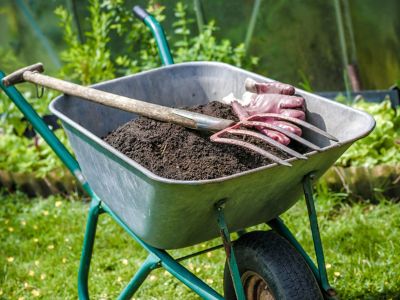What is Organic Material?
What is organic material? Basically, anything that occurs in nature can be considered organic material, although not all of it is useful as a gardening addition. If you read organic gardening information, you’ll find that almost every plant and animal by-product can be used in one form or another, and most of them can be added to composting. Using organic material for gardening helps sandy soil to retain moisture while it allows clay soil to drain more efficiently. It breaks down to feed organisms, such as earthworms, as well as feeding the plants around it. The types of organic matter needed in your soil will depend on the conditions you’re working with.
Organic Material for Gardening
Compost is considered by many organic gardeners to be the most perfect of soil additives. It’s known in gardening circles as black gold because of the many purposes it can fulfill. Organic materials are piled in layers in a compost bin or a heap, then soil and moisture are added and the materials are allowed to decompose. The result is a rich, dark sort of loam that enriches and conditions any garden soil. Examples of organic material that do well in compost piles are kitchen scraps, grass clippings, torn newspapers, dead leaves and even animal manure. Once the ingredients all break down, this additive is dug into the soil and mixed with the garden dirt. Not all composts are made alike, and the value of any particular pile depends on the original materials that were added to it, but in general more variety of materials makes for a better end product. Lots of variety adds trace elements to your soil as well as conditioning it, making it even more valuable in your garden.
